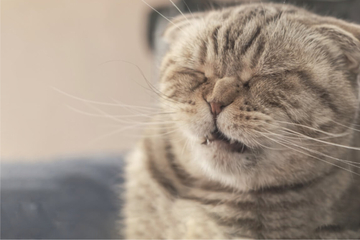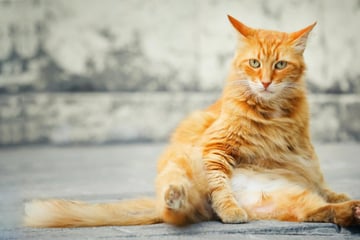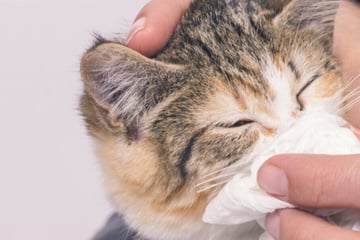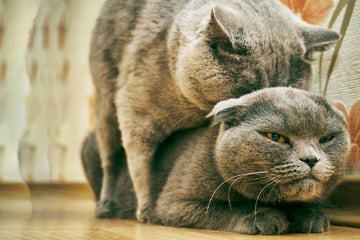Cat shedding a lot: Causes and solutions
It can get pretty messy when a cat sheds its coat, but why does it shed so much anyway? When are cats likely to shed their fur, what causes it, and how can you help your kitty during shedding season?
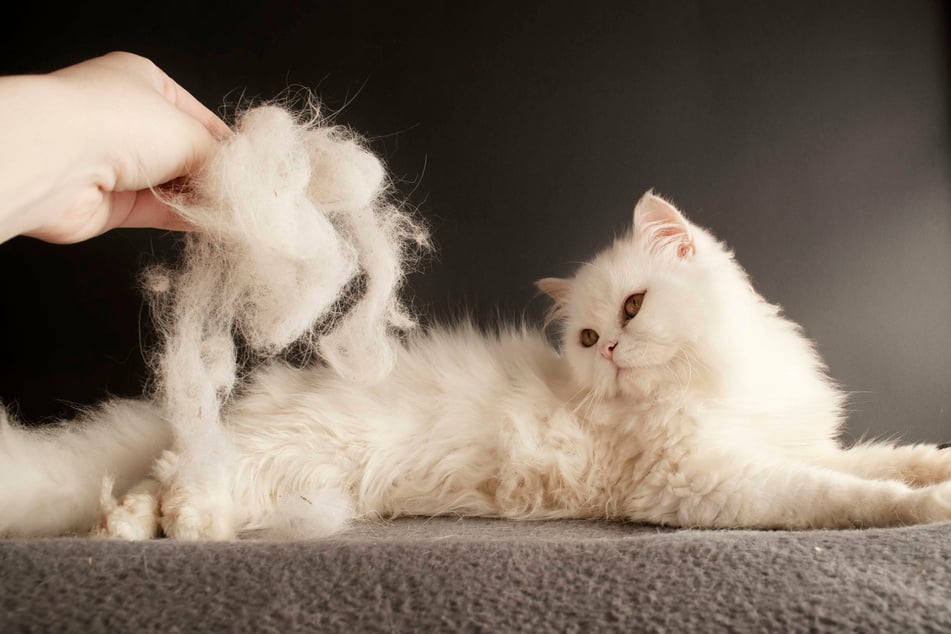
Every cat owner knows the time we're referring to. There are a couple of weeks every now and again when your kitty sheds so much fur that it's like a tsunami of (outrageously fluffy) tumbleweeds rolling through the house. Why do cats shed their fur, though, and when is it a little excessive?
In this cat guide, TAG24 explains why your cat is shedding a lot, when they are likely to shed, how you can help reduce shedding, and more.
Symptoms of cat shedding: What is it?
When cats shed they can often get rather fatigued, as the process is quite draining. There are a number of symptoms that are relevant to your experience of a shedding cat, and a few differences to consider between indoor and outdoor feline friends.
A number of cat shedding symptoms include:
- Their coat will become flaky, and fur will consistently fall off
- They will get rather itchy and you may notice them scratching
- Due to excessive coat loss, they may develop bald patches
- Significant increase in fur balls due to the increase in loose hair
- As a result of the increase in fur balls, they have loss of appetite
Keep in mind: Cats shed their fur automatically, so this ain't a choice. Remember to show them some affection during this time, it isn't their fault that they're making a mess and are feeling sick.
The difference between indoor and outdoor cats: You may find that, because outdoor cats spend far more time outside, their seasonal coat changes will be far more prominent than with indoor cats. That is not to say that indoor cats won't shed, as they will still notice the changing of the seasons, but it will be far less.
Why is my cat shedding so much?
Cats shed their coats to lose their dead fur, to reduce the risk of continuous fur balls, and to release natural oils as a sort-of 'moisturizer'. Ironically, when cats shed fur, they also see a steep increase in fur balls and feel quite unwell.
Your cat will suddenly start shedding a couple of times a year, and the most likely reason for this to happen is because it simply needs to lose some fur. There are, however, some medical reasons for why this may happen, and if it seems overly pronounced, sudden, or worrying, make sure to take your cat to the veterinarian.
When do cats shed?
Cats consistently lose hair throughout the year, just like us humans do, but now and then, the 'cat shedding season' arrives. These seasons are generally located within transition periods such as when the temperature is getting hotter, colder, wetter, or drier.
As a result, cats generally shed during spring or autumn, going through intense periods of coat change every six months or so.
In the fall, the hair that cats shed will be replaced with thick and insulating winter fur that helps keep your feline friend warm and comfortable. This layer of insulation won't be necessary when they go through their spring shed, though, at which point they will grow a light, airy summer coat.
Fun fact: Seeing as your cat goes from a large winter coat to a rather slim summer alternative, spring is generally considered the worst period of shedding in a kitty calendar. Be prepared for some serious fur balls!
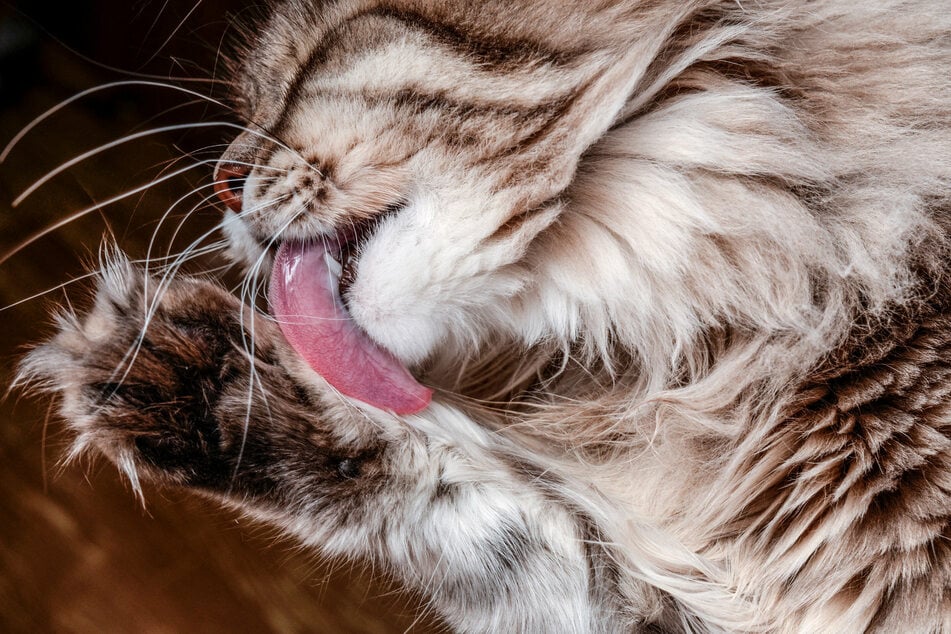
How to reduce cat shedding
Cats clean and groom themselves several times a day by licking their fur, creating a real risk during shedding season. This fur will often get swallowed by the kitty and regurgitated at a later date as a fur ball. As a result, it's a great idea to try and reduce cat shedding or, at the very least, mitigate the amount of loose fur that could be consumed by your cat.
To help you help your cat, here are a few things that you can do to reduce the amount of fur that will be consumed during shedding season...
Keep cats from shedding with a good brush
Properly brushing your cat's coat is crucial to making sure that it doesn't get large amounts of fur in its gut. Depending on the length of its coat, you should brush them (with a dedicated brush for cats) either once a day or a couple of times a week.
It can be difficult to get your cat accustomed to having its fur brushed, much as it can be hard to get your cat used to having its claws clipped. It's worth it, though, as it makes your cat's life much better and reduces the quantity of fur floating around your home.
Hot tip: It's best to combine the process of brushing your kitty with some good cat cuddles and petting. You want it to associate brushing with positive things, to make it easier in the future and nicer for the both of you.
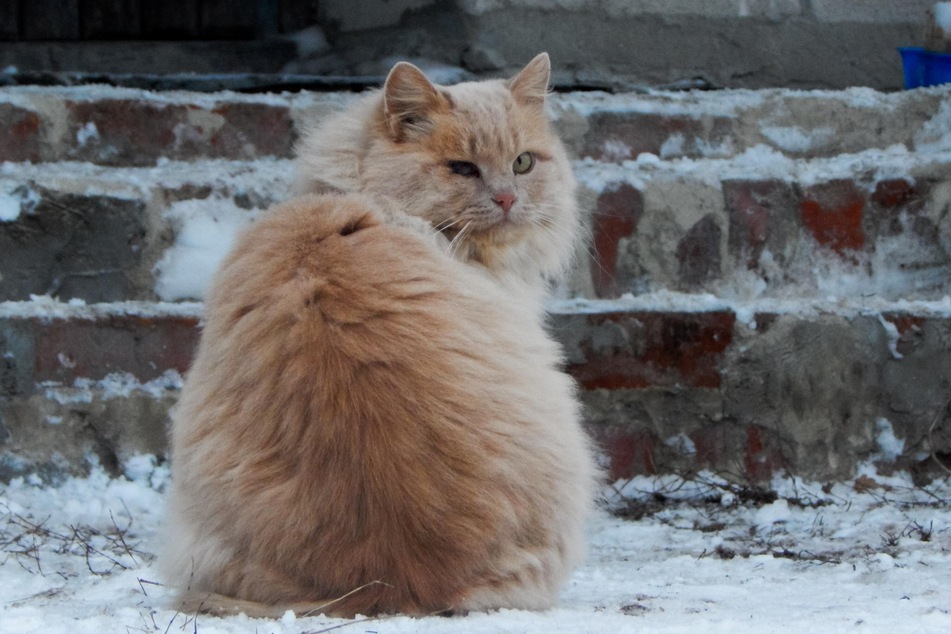
Stop cats from shedding with cat food
Foods that contain lots of proteins, minerals, fatty acids, and appropriate cat vitamins are incredibly beneficial during shedding season. As a result, special attention should be paid to your kitty's diet when it is shedding.
You want its nutrition to support hair growth, strengthen its coat, and supply natural oils to help keep its skin moisturized and its fur glistening. Luckily, it's not too hard to achieve – just ask your veterinarian and they will suggest some good cat foods.
Can I shave my cat to stop shedding?
It's not the best idea to shave your cat, and even if you do, it won't stop them from shedding. Instead, their fur will simply be shorter when it falls off and their fur balls won't be as severe.
On top of that, shaving your cat can cause discomfort for your feline friend, and can make them feel very cold in the winter. In other words, please don't do it, it's pointless and only makes things worse for your cat.
Cat grass helps a cat who's shedding
While cats are carnivores, you will often notice them chewing on blades of grass. This cat grass is profoundly important during shedding season as it helps them throw up their fur balls. Most cats will find cat grass on their own in the garden, but if they are inside cats then you need to provide this for them.
If you want a more detailed guide on how to do this and what kinds of grass are safe, you should check out our guide on cat grass. The most important things to note is that this is an entirely safe and natural behavior that your cat will do instinctively if outside. It increases their gag reflex and allows them to dispel foreign substances from their guts.
Please note: If your cat has been losing an unusual amount of hair, it could be due to a variety of sicknesses and parasites. As a result, you should make sure to get your kitty checked out by the vet in such a situation.
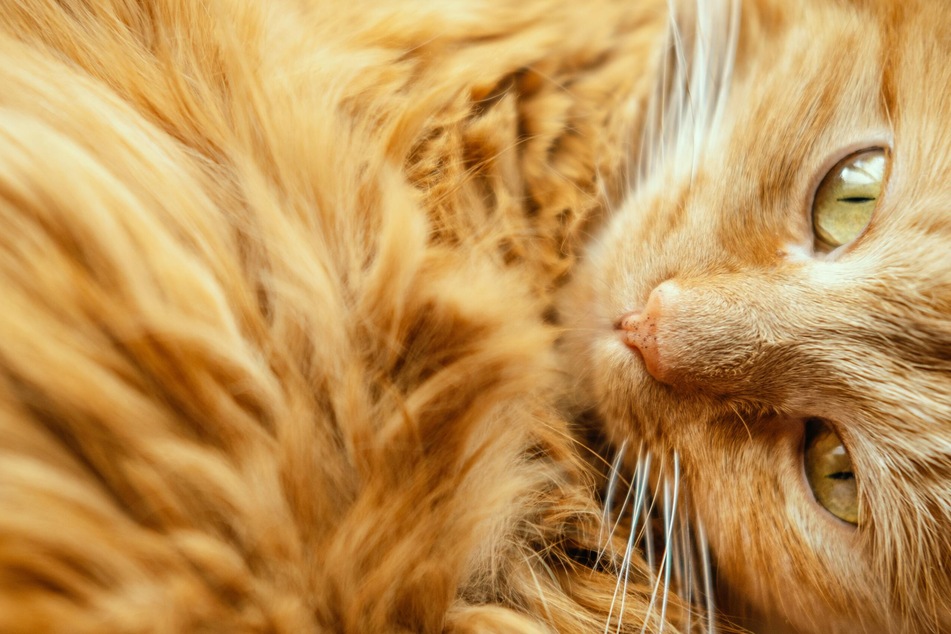
How to prevent cat from shedding
There is no way to outright prevent your cat from shedding, there are only ways to reduce their shedding. Your cat needs to shed, so use some of the measures we listed above to help your shedding cat, but don't try to prevent it outright.
Cat hair shedding solutions are the best way to reduce fur balls
Throughout most of the year, cats shed far less than during these designated shedding periods. As a result, during the weeks when this is the case, your cat will likely see a significant uptick in fur balls and vomiting. This is because they are eating a very large quantity of fur.
Use the cat hair shedding solutions shared in this article to help reduce fur balls during these difficult times, keep your cat comfortable and happy, and avoid soiled carpet. If you are worried, though, see a vet.
Cover photo: 123rf / Vampirica777
